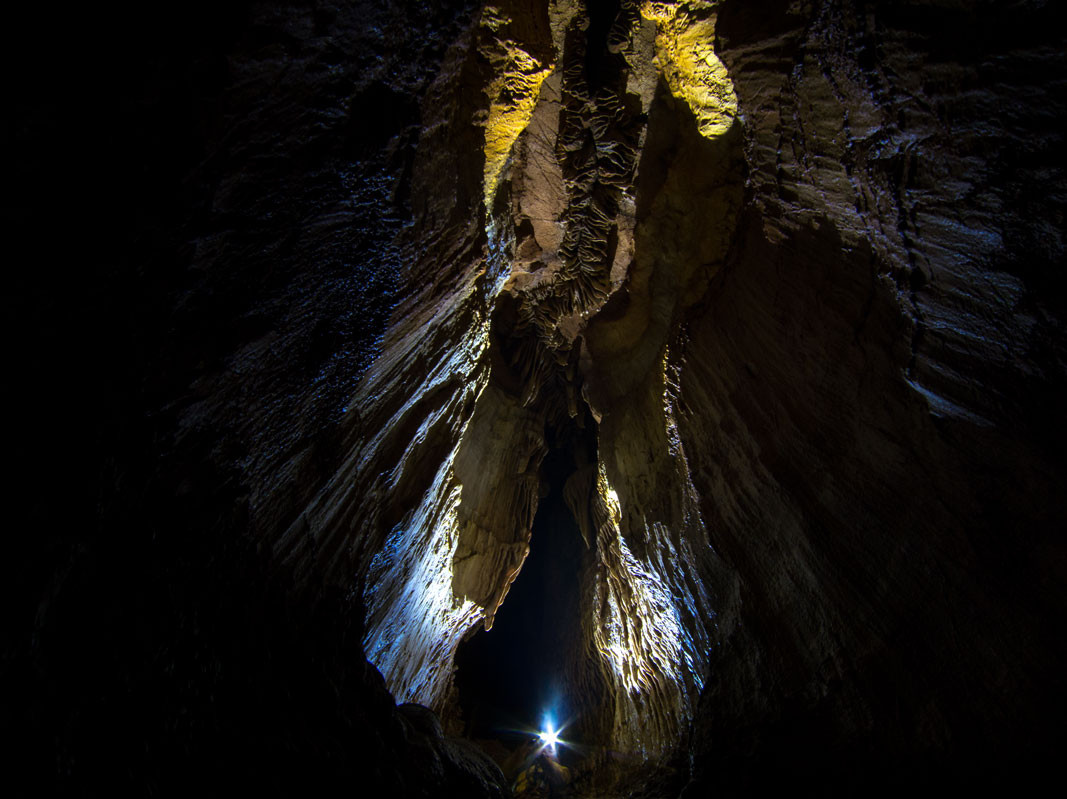Caves used to bethe shelter and first home of the “cavemen” who inhabited the present-day lands of Bulgaria thousands of years ago. To this day, rock formations are important for science and progress of mankind. In the caves, new deposits of water are discovered, water sources are tracked, geological surveys are conducted and old and unknown life forms are still being discovered. On March 18, the Bulgarian Federation of Speleology celebrates the 91th anniversary of the creation of the first speleological society back in 1929. That is why we met Dimitar Paunov, a speleologist with many years of experience and a former member of the Aleko Konstantinov Speleology Club in Sofia, to talk about the difficult but fascinating task of people who have dedicated themselves to this activity.

“We have the great opportunity to be the first to step in some cave, unknown before and experience the feeling of being the first human beings to enter a cave gallery. It happened to me personally in Karvava Lokva Cave in the area of Kotel, where we were on an expedition. Before us someone had discovered an extension of the cave. This is a precipitous cave, but 7-8 meters away from the bottom there is an opening on the wall. The interesting thing is that in order to get into this hole, you have to swing, loosen the rope and plunge into it, which is not easily done on the first try. When you manage to do it feels as if you have conquered a huge mountain, as there is nothing to compare with the thrill of entering a place where no human has been before."
Speleologists consider themselves to be a special breed of people, because they leave their cozy home in search of beauty where eternal darkness reigns. Their love for the beauty of the harsh, inaccessible caves knows no boundaries.

"When you are in a cave times flies quickly as we do not carry watches with us and we do not have any mobile connection there," says Dimitar Paunov:
"For example, if we go in the afternoon, we spent there all night and go out in the morning the next day. One does not feel the time passing. There one is ecstatic as they light their way and are fascinated by the rock formations. Your imagination opens up when you see all kinds of beautiful formations and if you are a photographer, you get pretty excited about it. There are many photographers among speleologists and they bring tripods and lights.Their photos are sometimes incredible works of art. When a person enters a cave they should set a control time for exiting, but there havealso been incidents. Years ago, our members had entered the Duhlata Cave, near Pernik, but rising water had blocked them and a rescue operation was required.

They spent about a week in the cave in extreme conditions. The fact that there is water everywhere in thiscave saved them. This is the most dangerous thing, as there are obstructions of some passages through which a person had entered. Sometimes the cave galleries are clogged with mud and stones and that is why we carry with us tools to make our way into a cave if necessary. This is hard work, so there are few volunteers who want to dig into the caves in order to open way to new galleries."
English: Alexander Markov
Photos: speleo-bg.org and BGNESExactly 3 years ago, on February 24, Russia’s invasion of Ukraine began – an event that woke up Europe 77 years after the end of World War II and called into question one of the main goals of the EU – preventing a new armed conflict on the continent...
The festive service for the consecration of the new Bulgarian Orthodox church in London is led by His Holiness Daniil , Patriarch of Bulgaria, who also officiated at the Ressurection Vespers on Saturday. Hundreds of lay people-official guests and..
The Martenitsa Festival was held in Brussels f or the third consecutive year . Cultural organizations from Bulgaria, Romania and Moldova presented their country's traditions related to the "Baba Marta" holiday, which heralds spring. The initiative..
The festive service for the consecration of the new Bulgarian Orthodox church in London is led by His Holiness Daniil , Patriarch of Bulgaria, who also..
The Martenitsa Festival was held in Brussels f or the third consecutive year . Cultural organizations from Bulgaria, Romania and Moldova presented their..
Measurement equipment installed at the Bulgarian Antarctic base "St. Kliment Ohridski" has been collecting valuable data on solar activity and its..

+359 2 9336 661
